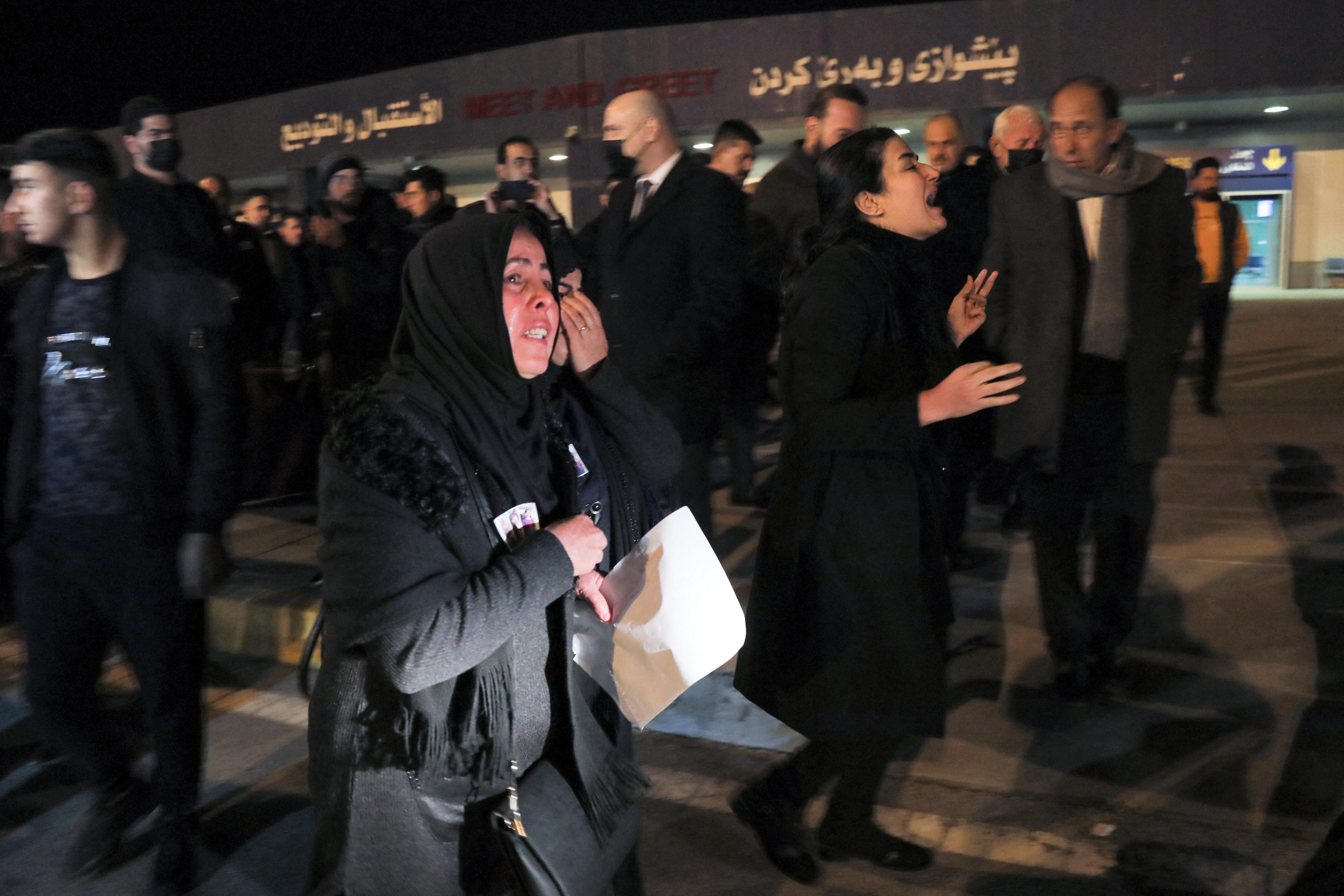
A woman mourns outside an ambulance carrying the remains of five Kurdish migrants who died as their boat capsized while attempting a crossing of the Aegean Sea, at Erbil airport on February 1, 2022. Photo: Safin Hamed/AFP
ERBIL, Kurdistan Region - The bodies of five migrants who drowned in the Aegean Sea last year were repatriated by the Kurdistan Regional Government (KRG) on Tuesday. Dozens of mourning family members received the bodies of the two children, aged 9 and 12, and three women at Erbil International Airport, where they were subsequently taken to their places of origin for burial.
In December, three boats carrying migrants, including a number from the Kurdistan Region, drowned in the Aegean Sea between Turkey and Greece. Nine bodies were recovered.
The latest repatriation followed a directive issued by KRG Prime Minister Masrour Barzani, tasking the Department of Foreign Relations (DFR) to liaise with Greek authorities to investigate the drowning of the three boats, and to deal with the repatriation of the nine bodies.
Four other bodies were repatriated on Saturday.
Rudaw was denied access to covering the repatriation at the Erbil airport on Tuesday.
A delegation from the DFR visited Athens on January 22 and met with Greek authorities. Dozens of migrants from the boats which drowned in the Aegean are still missing.
“The KRG reassures everyone that it will continue its efforts to search for those missing,” the KRG statement from January 26 read.
Tens of thousands of mostly young Kurds left the Kurdistan Region for Europe last year in search of a better life, using people’s smuggling routes. A number of these migrants died in freezing temperatures on the Belarus-Poland border and others drowned in the sea.
In November, a small boat carrying 34 people who were mostly Kurds capsized in the English Channel between France and the United Kingdom, leaving at least 27 dead. Two survived the journey, 27 bodies were recovered from the sea, while five others are still missing in the English Channel.
The bodies of 16 migrants drowned on November 24 in the English Channel were repatriated at the behest of the KRG in December last year.








Comments
Rudaw moderates all comments submitted on our website. We welcome comments which are relevant to the article and encourage further discussion about the issues that matter to you. We also welcome constructive criticism about Rudaw.
To be approved for publication, however, your comments must meet our community guidelines.
We will not tolerate the following: profanity, threats, personal attacks, vulgarity, abuse (such as sexism, racism, homophobia or xenophobia), or commercial or personal promotion.
Comments that do not meet our guidelines will be rejected. Comments are not edited – they are either approved or rejected.
Post a comment